Customer Program Evaluation
Achieving great outcomes with residential and commercial customer programs is not a passive relationship between contract-holders, third party implementors (3P) and manufacturers.
If there was secret to success, it would be understanding the steps, paths, people, creative ideas, plans, costs, data, debates, data-based strategies, gut instincts, as well as, vision, research, empathy, support, hard work, and not giving up….on the road to success.
CFS brings decades of experience with program implementation and long, complex sales cycles, involving numerous internal and external stakeholders. We bring collaboration, managing towards a strategic plan, and a hands-on approach to yield multi-layered success.
Customer Programs for Contract holders: When should you engage a third party (3P) implementor and when is it more beneficial to build your own in-house program?
Depending on the customer sector, it may be more cost-effective to work with a 3P implementor, but they are talking to YOUR customers. Consider how the 3P is representing you and building your customer intel and relationships?
Customer Programs for 3P Implementors and Manufactures: Partnering with utility account managers or key associations, where available, strengthens customer trust and adds additional follow up support. Making sure the customer benefit and experience is more important than the profit will yield greater success in the long run.
Development for grant applications: We provide content development for actionable, achievable plans and timelines, based on your target audience and internal resources.
Here are general contract-holder recommendations for starting new, sector-based energy programs:
Demand Response (DR): In-house programs yield greater results for customer relationship building and measurable results. 3P aggregators may offer solutions by technology system, but they come with major limitations.
DR aggregators typically conceal customer agreements, giving utilities little to no insights into a customer’s potential load shifting ability and they can be a barrier to establishing closer relationships with customers.
DR aggregators typically work with isolated system controls rather than comprehensive full-facility, actionable curtailment opportunities.
Finally, they receive capacity incentives that could be going directly to customers.
In-house programs place you in front of the customer’s operations; you learn who has flexible capacity and who has BUGs. You are the customer’s trusted energy advisor.
Residential: 3P outreach typically supports mass-market outreach. If striving to build customer loyalty for the contract-holder, the 3P materials should mirror the contract-holders brand. Build into the expectations close communications and oversight into the customer experience. 3P programs typically do not build customer relationships or brand awareness for the contract-holder, but when supported by both parties the collaboration yields greater results.
Large Commercial: 3P options maintained in close collaboration with contract-holder account managers and program administrators yield greatest results, otherwise these programs may not build long-term customer relationships or brand awareness.
Energy Efficiency programs: 3P expertise for commercial/residential programs is well established - the right internal/external collaborations increase success
Climate Forward Solutions brings immediate cost-effective guidance to Program Development teams:
CFS bases program recommendations on decades of successful, sector-based energy program implementation. We assess your current programs and plans for launching new programs.
We identify your unique set of resources, staff, opportunities and barriers and identify the building blocks you will need to produce the program results you want to see.
We want to help you build programs and implementation plans that yield the greatest insights into customer needs and load management potential.
When considering a project timeline, you can only advance at the speed of trust. What is the level of trust you’ve built with your community members, customers/clients, and internal teams?
CFS applies a retro-commissioning approach to program implementation. It’s a whole-team approach to improving existing internal and external stakeholder collaborations; ensuring that everyone is working in sync towards the common achievement of energy-program success.
